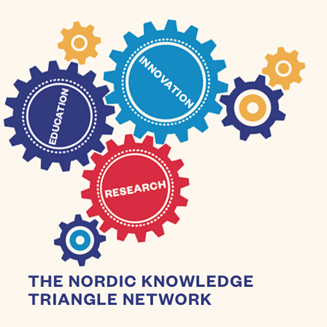During 2011–2015, The Nordic Council of Ministers invited Nordic universities and colleges, and later on, Chinese universities and other innovation partners in the Shanghai region, to establish networks with stakeholders from research and innovation. The goal was to increase the synergies between academia and society, as well as knowledge exchange in relation to commercialization and innovation in design, culture, welfare, energy, health and entrepreneurship. Two large groups of networks have emerged:
- The Nordic Network: METIS, NORDTEK, NeRo, Culture KICK,
- The Sino-Nordic Network: Sino-Nordic Welfare Research Network (SNoW), Sino-Nordic Network in Ethics of Research and Public Health, Urban Governance for Sustainable Cities Network, Dynamics and Reliability of Renewable Energy Systems, China in Turbulence: Paths forward for Nordic Business? , Food4Growth — a Nordic Sino-Network for Healthy Diets, Nutrition and Lifestyle
Outcomes:
The project has encouraged stakeholders (academia, industry and society) in the Nordic countries to become more active in research and innovation and to overcome disparities that exist between universities research intuitions and companies.
- Publication (book and e-book) Methods of Modernizing the Nordic Knowledge Triangle — Design, Culture, Welfare, Energy and Entrepreneurship (a TemaNord publication) – valued as a collective effort towards identifying the best methods among the wide variety of professionals’ experiences in linking education, research and innovation throughout the Nordic and Sino-Nordic countries;
- Commercialization of research outputs;
- Valorization of universities’ activities and its international attractiveness;
- Joint seminar within the 6th European Innovation Summit, European Parliament, Brussels, 7 November 2014 — the agenda focused on concrete study cases and methods for transferring knowledge at micro and macro level shared by project managers of the networks involved in the program.
Next Step:
In the next two years, our vision is to find opportunities to bring the knowledge triangle program outside the Nordic countries by:
- Raising awareness of the existing knowledge triangle program and its ultimate goal of putting knowledge into practice through the collaboration of stakeholders in higher education, research and businesses.
- Partnering with international partners to establish new networks and new types of cooperation between education institutions, research organizations and businesses that will help higher education contribute to jobs, growth and its international attractiveness;
- Applying for grants through calls for proposals within the EU’s Europe 2020 strategy or other funding programs;
- Designing sustainable digital or physical structures (online platform, interdisciplinary centers, innovation clusters, business incubators, etc.), that will allow knowledge exchange and foster innovation between actors of the three sides of the knowledge triangle: education, research and businesses. The structures will influence the educational programs to target multi-disciplinary and entrepreneurial skills relevant to the business sector and enable the transition of research results into market.

- Project Initiator and Sponsor:
Nordic Council of Ministers
- Coordinator:
Halina Gottlieb, Digital Heritage Center
- Website:
- www.norden.org/knowledgetriangle